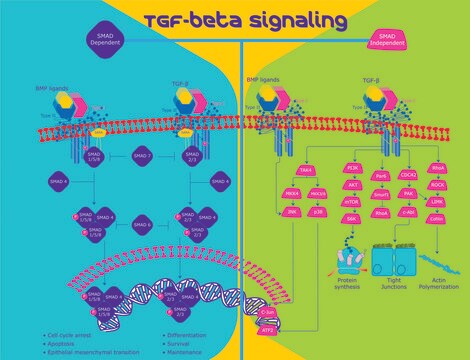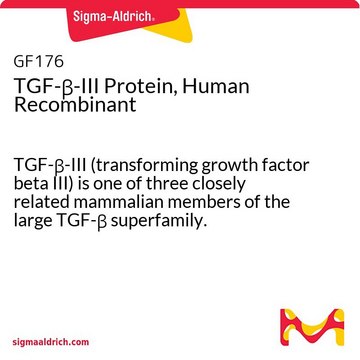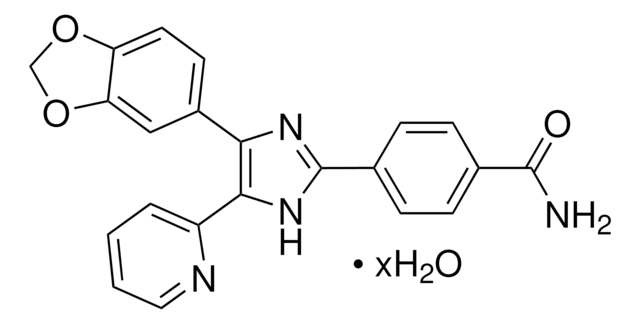H8791
Transforming Growth Factor-β3 human
HumanKine®, 95% (SDS-PAGE), recombinant, expressed in HEK 293 cells, lyophilized powder, suitable for cell culture
Synonym(s):
TGF-β3
About This Item
Recommended Products
Product Name
Transforming Growth Factor-β3 human, TGF-β3, recombinant, expressed in HEK 293 cells, HumanKine®, suitable for cell culture
biological source
human
Quality Level
recombinant
expressed in HEK 293 cells
Assay
≥95% (SDS-PAGE)
form
lyophilized powder
potency
≤1.0 ng/mL EC50
quality
endotoxin tested
mol wt
dimer 25 kDa (non-glycosylated)
packaging
pkg of 5 μg
manufacturer/tradename
HumanZyme
storage condition
avoid repeated freeze/thaw cycles
technique(s)
cell culture | mammalian: suitable
impurities
≤1 EU/μg
UniProt accession no.
storage temp.
−20°C
Gene Information
human ... TGFB3(7043)
Looking for similar products? Visit Product Comparison Guide
General description
Biochem/physiol Actions
Physical form
Preparation Note
This product is lyophilized from a solution of 50mM NaOAc, pH 3.7.
Analysis Note
Legal Information
Storage Class Code
11 - Combustible Solids
WGK
WGK 3
Flash Point(F)
Not applicable
Flash Point(C)
Not applicable
Choose from one of the most recent versions:
Already Own This Product?
Find documentation for the products that you have recently purchased in the Document Library.
Customers Also Viewed
Our team of scientists has experience in all areas of research including Life Science, Material Science, Chemical Synthesis, Chromatography, Analytical and many others.
Contact Technical Service









